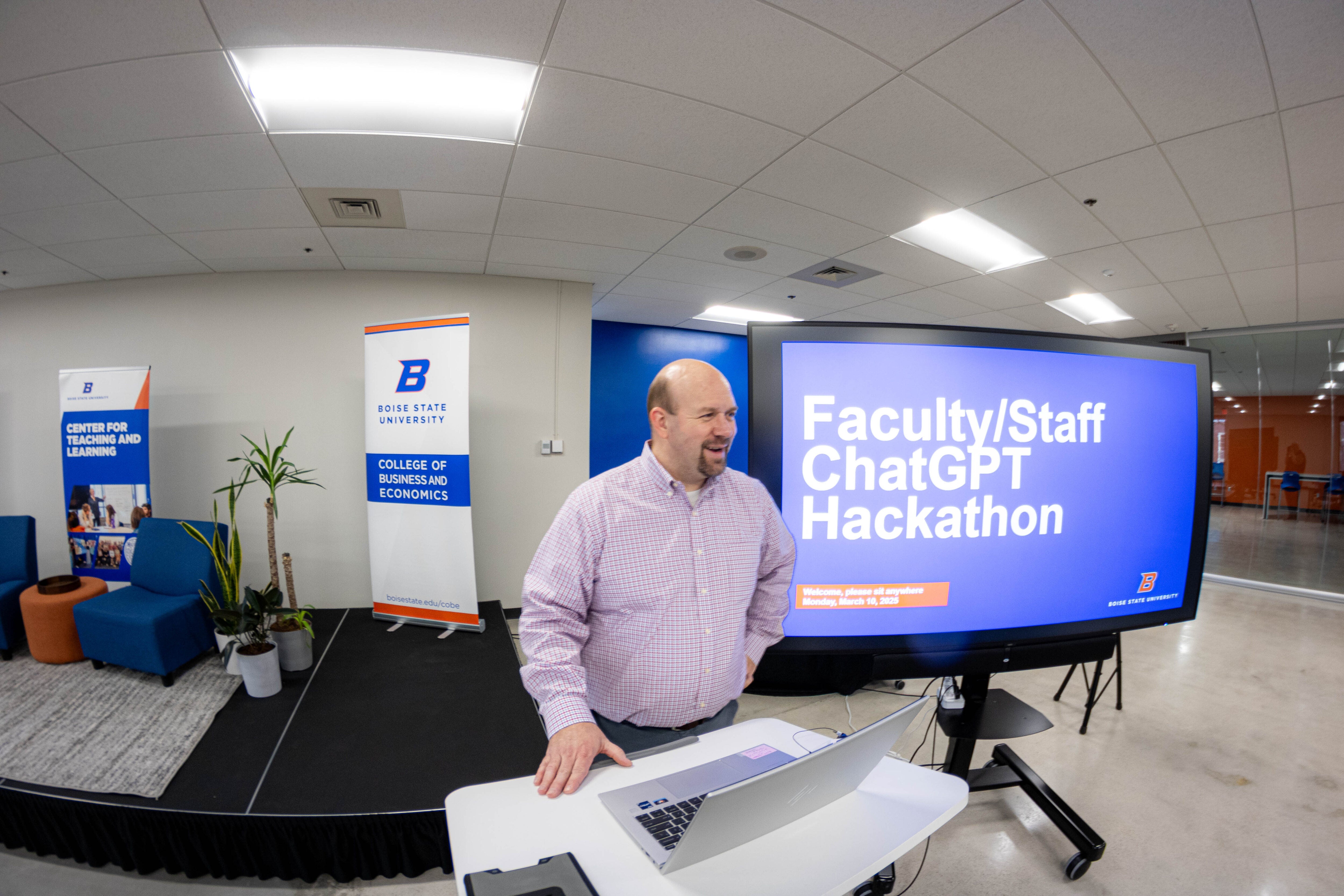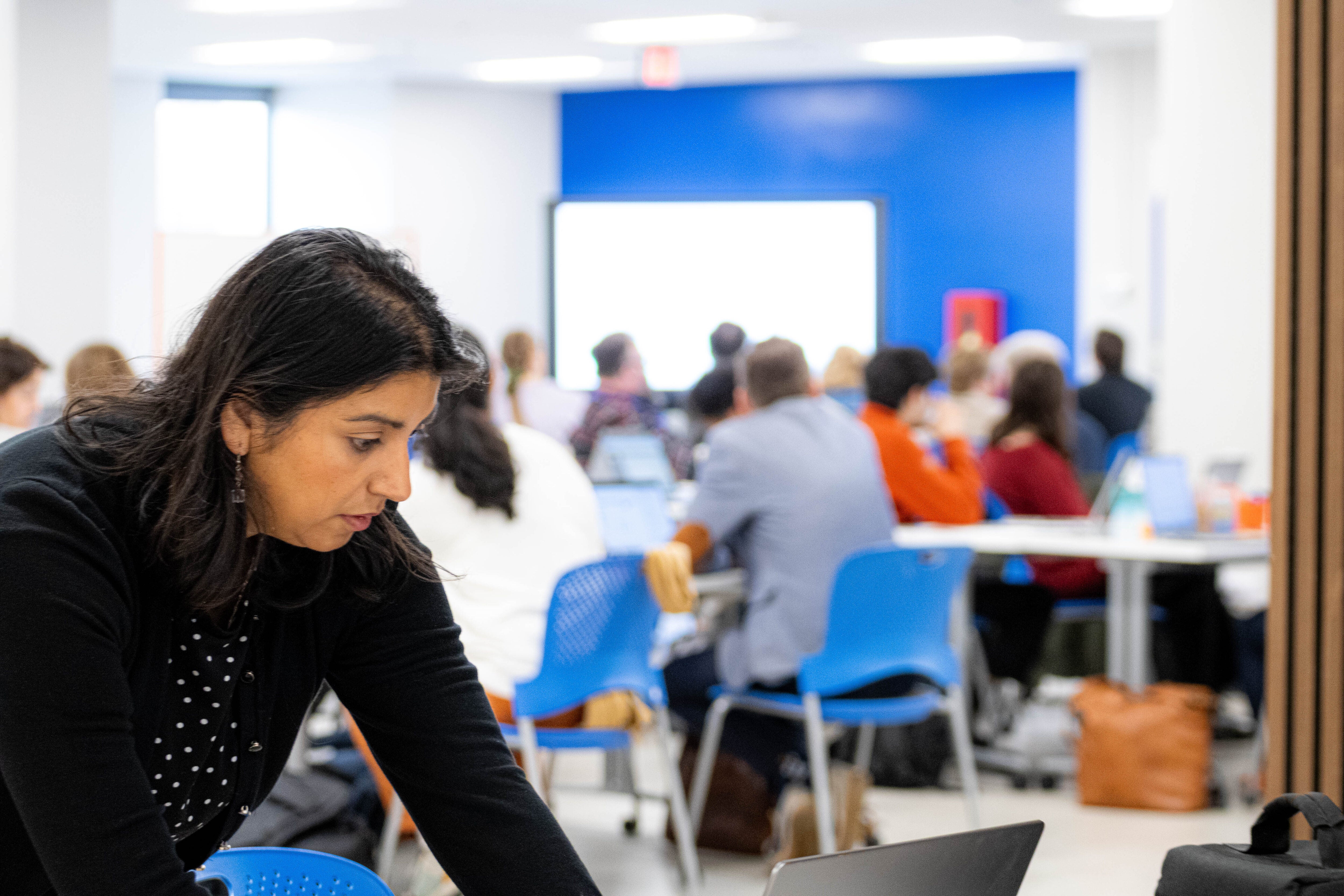
Over 50 Boise State faculty and staff attended a ChatGPT Hackathon at The Space in Albertson’s Library in March 2025. The event, a hands-on three-hour workshop, was designed to enable participants to develop their own custom “generative pre-trained transformer,” or GPT, to enhance learning and operational efficiency. All faculty and staff with a ChatGPT Edu license were invited, and the event was cosponsored by the College of Business and Economics, the College of Innovation and Design and the Center for Teaching and Learning.
“We have so much AI expertise on campus and we wanted to get those folks together to share their ideas with the campus community,” said Dan Rush, event co-organizer and associate professor for information technology management. “This idea grew out of an experience I had in a campus book circle that read the book ‘Teaching with AI.’ During one of the discussion sessions, Natalie Davidson from Boise State’s Educational Access Center quickly created and shared a custom GPT that evaluates materials for accessibility. And I just thought ‘wow, that’s really useful and only took a short time to create a viable prototype!’ We wanted more moments like that. That’s how the Hackathon was born.”
Rush spoke at the event alongside Kevin Rank, College of Business and Economics AI fellow and lecturer for information technology management, Steven Hyde, assistant professor in management and Josie Graham, director of public safety finance and administration. They presented on AI theory, current research, policy considerations, and effective prompt engineering. They also shared examples of how AI is already being integrated into Boise State workflows. Following the presentations, participants worked in groups to create reusable AI tools, for communication, productivity, teaching and other applications.

Participants developed a range of GPTs, from a personalized career mentor to philosophy quiz creator. Boise State’s Office of Information Technology reported that 40 new custom GPTs were created under the university’s ChatGPT Edu license the day of the Hackathon.
“I found the presentations very helpful!” said Noreen Beckie, instructional design manager for the eCampus Center. “I was unaware why I’d want to create my own GPT, so the examples were ‘duh’ moments. Framing GPTs as a personal assistant for common tasks that I do in ChatGPT, and seeing how easy it was, was worth my time as well.”
Natalie Davison, assistant director of the Educational Access Center also attended. “Thank you – this is the best AI event I have been to yet and I crash most of them. I love experiential learning,” she said.
Although another Hackathon is not currently scheduled, Boise State offers various AI resources for interested faculty, staff and students:
- AI in Education website (for faculty and staff)
- Staff AI Training Brown Bags which explore AI from a staff-focused perspective (for staff)
- COBE AI Brown Bag series which tracks and covers new AI development (for faculty, staff and students)
- Social Impacts of Computing or SioC (for faculty)